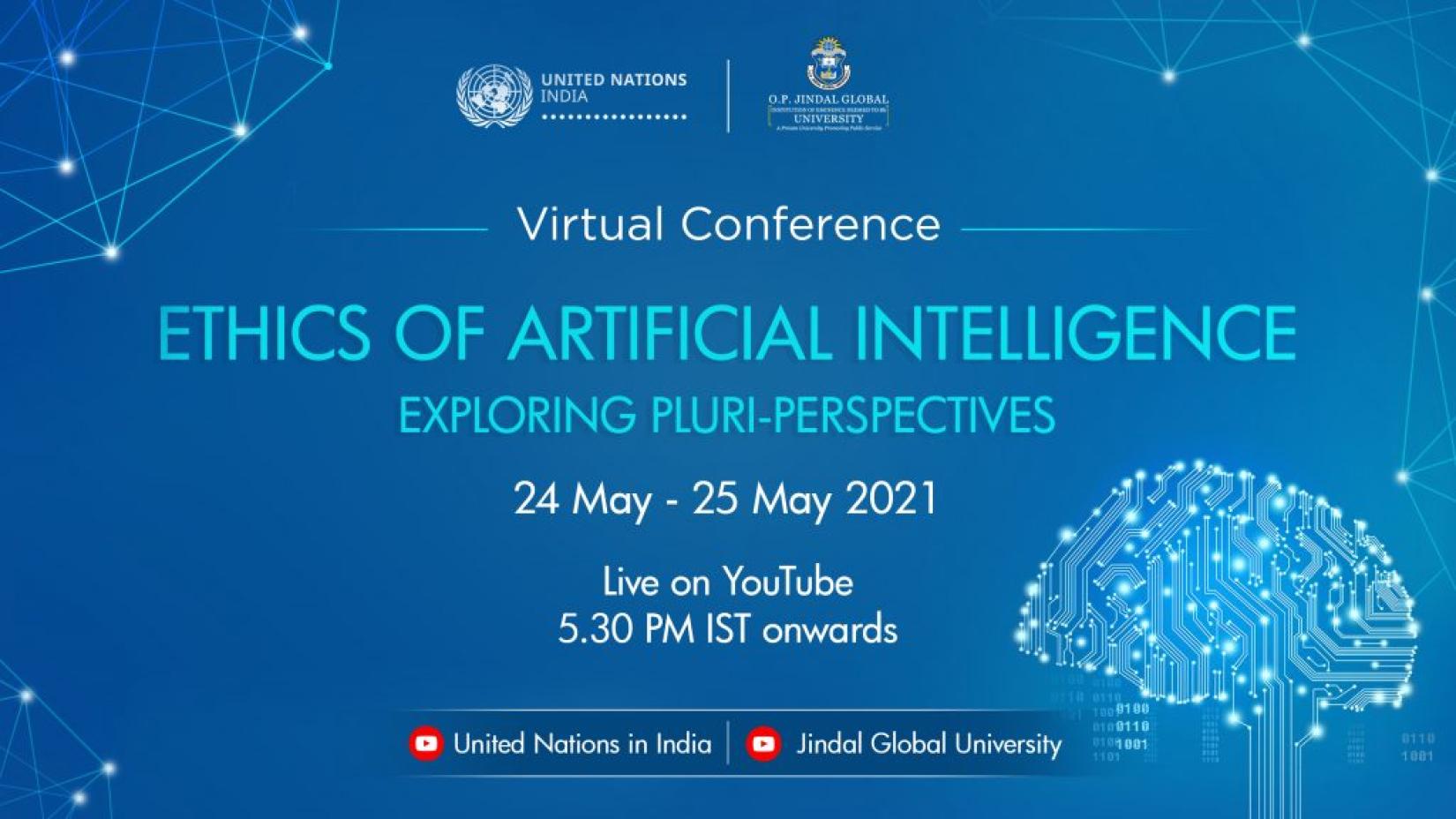Organizers
RCOStream the Event
https://www.youtube.com/c/UnitedNationsinIndiaSustainable Development Goals
Contact information
rcs-unrco.india@un.orgEthics of Artificial Intelligence: Exploring Pluri-Perspectives

Location
About the event
Technological breakthroughs inevitably challenge existing norms and conceptualisations of the systemic structure of societies, including their ethical frameworks. New (and old) ethical considerations often recapture our imagination and our preoccupation after significant technological revolutions. Rapid advancements in nuclear, genetic and communication technologies triggered extensive discussions and concerns about their ethical fallouts.
The emergence of artificial intelligence (AI), at a mind-boggling pace since the beginning of the present millennium, has raised questions about its ethical implications, and indeed, its very ontologies within the world of legal philosophy and spiritual traditions of humanity. The existing social norms and behavioural patterns across societies are strained and challenged by AI. As with previous technological advancements, AI is shaping our responses and arguably changing humanity itself. AI influences the way people perceive its challenges, including ethical issues and problems and our preferences and behaviour.
There has been a mushrooming of dialogues, papers and debates on the ethical implications of AI. A plethora of ethical frameworks to guide the design, development and deployment of AI have emerged at the global, regional, national and corporate levels.
Most of these initiatives are underpinned by the European philosophical traditions of ethics and morality. While references may be made to the Universal Declaration of Human Rights and its broad-based norms and standards, these AI frameworks and discussions have been limited to Western ethical perspectives and issues that mainly concern developed countries in the North.
As home to many of the world’s great religions, as the cradle of several ancient, uninterrupted human civilisations, as home to rich philosophical schools of enquiry, Asia has much to offer when we explore the ethics of AI. India and China alone constitute 37 per cent of the world’s population and 45 per cent of global growth (2018). They will undoubtedly form power blocks in the AI century ahead. Together, they gave birth to the wisdom of Hinduism, Buddhism, Jainism, Daoism, Confucianism, among others.
Agenda: Day 1, 24 May 2021
Agenda: Day 2, 25 May 2021
OP Jindal University and the United Nations have organised a dialogue on Ethics of Artificial Intelligence: Exploring Pluri-Perspectives to bring various schools of philosophical thinking from the east to complement philosophies from the west to try to really dig deep into what it means the ethics of AI.

